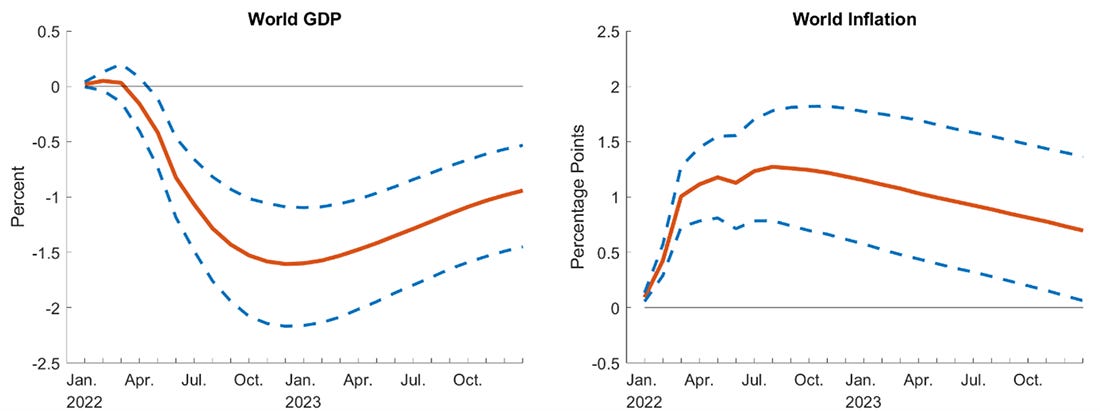↪ re: Change of Edge
Are central banks overreacting to inflation? Are we in for a positive surprise?
Dear Readers,
It was a particularly gloomy September, but when sentiment turns this sour, it starts to feel overdone. Investors are asking, when will it ever end? First Covid, and now this?
As the weather turns chilly, I’ve been thinking back to my (long ago) figure skating days. One of the most basic elementary moves on the ice is called a change of edge. You begin to trace a circle with one edge of a double blade, and then while on the same foot shift to the other edge to trace a new circle in the opposite direction. At the moment of the change of edge, the skater is straight and motionless-it’s all about balance. Has the global economy reached that moment? The risk of course is that we don’t head in a new direction, but take a nasty fall.

Since we all know the reasons behind the current pessimism, what are the possible events that could turn things around?
Something breaks, and the Fed sees that it has gone too far and slows or reverses course. A chorus of economists including Paul Krugman and Claudia Sahm have warned against the speed if not the direction of their response. Their basic argument is that inflation was not caused by monetary policy, and therefore cannot be eradicated through interest rates. A pivot in my view is a highly like event.
The question is, how soon? Jay Powell might be attempting to emulate Paul Volcker, but in today’s environment of interdependent financial systems and much higher overall debt post-pandemic, a Volker-like response is unwise if not catastrophic, and could trigger a global financial crisis. Focusing on US price levels and employment in this instance of inflation is misguided; Covid has tainted these lagging indicators. Money supply however, has leveled off in 2022 signaling a possible economic slowdown.
Data is revised or is suddenly more favorable and the Fed puts on the brakes. Again, this will happen sooner or later, the question is merely when, and why.
Politics wins. People and enterprises have already been through so much because of Covid that it is hard for bureaucrats to ask them to go through another round of hardship. This is what is happening in Europe with energy prices, while the Fed is hoping to create higher unemployment in the US. Political opposition is going to swell dramatically this winter. As Robert Madsen, my colleague at Hale Strategic has said, the desire for a return to normalcy and the status quo is a powerful force. Underlining this point, seventeen US states have already put inflation support policies in place, which are simulative.
China roars back. It is now the slowest growing economy in Asia, but once it is unshackled by the end of Covid quarantines and its 5-year political cycle, Chinese economic growth could rebound. Other Asian economies are already in full recovery mode according to a new report by the IMF. As a a result of the Asian Financial Crisis, most have healthy forex reserves. Major assumption: China will be able to handle its current debt as well as currency issues and restructuring of its property sector. Based on past performance, there is more than a 50/50 chance this scenario will play out. Hong Kong will remove all restrictions for international travelers this month. More will follow.
The war in Ukraine ends and Europe revives. This scenario gives me the most hesitation. A year ago I would have thought this war was totally impossible. But it will end eventually, and will be followed by a Marshall Plan, preferably led this time by Germany rather than the United States. A rebound in economic growth will occur.

My conclusion is that I don’t believe that the Federal Reserve will be able to continue at its current pace, and that a pivot might happen a lot faster than is expected. Markets were more buoyant on Monday, but we have become inured to volatility so I don’t think this one-day uptick supports my thesis- yet. My point is that we should be prepared not only for negative outcomes, but for positive surprises.
Skaters use the momentum of edges to launch either a jump or a spin. Hopefully the world will land a perfect jump rather than enter a death spiral.
Japan, ever the exception and a monetary tightening holdout, has been left out of this letter, but here too the prospects for revival are good. EconVue will be hosting a panel discussion on the Japanese economy later this month with Richard Katz, John Greenwood and others, TBA.



